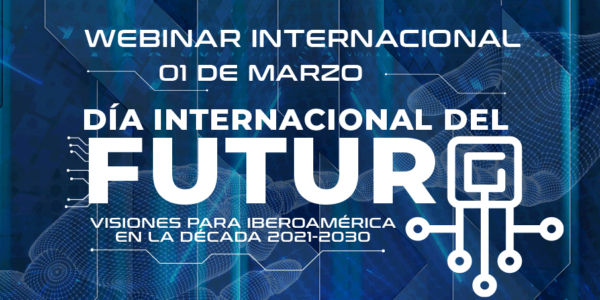Join 24-Hour Round-the-World Conversation to Celebrate World Futures Day, Hosted by The Millennium Project

Beginning March 1 in New Zealand at 12 noon NZ time (8 pm in Uruguay, Argentina, and Chile) and continuing for the subsequent 24 hours, the open conversation on how to imagine and build other possible futures will move west each hour.
We will be hosting the conversation In Uruguay at noon (12:00 local UTC-3) and until 1:00 pm. You are invited to join futurists and other stakeholders in exploring possibilities for our common future. As Uruguay Node of The Millennium Project and UNESCO Chair in Sociocultural Anticipation and Resilience, member of UNESCO’s Global Futures Literacy Network, we are inviting you to this conversation about the future, in collaboration with the Association of Professional Futurists (APF), Humanity+, the World Academy of Art and Science (WAAS) and the World Futures Studies Federation (WFSF).
24-Hour Round-the-World Conversation
Every year for the past seven years, for a non-stop period of 24 hours on March 1, global opinion leaders have shared their views on future threats and opportunities, from COVID-19 to artificial intelligence governance, creating concepts for the future of work, imagining space elevators to orbital cities, reducing climate change, guaranteeing security, water, and energy, the development of possible future forms of democracy, cybersecurity, the incorporation of global ethics in decision-making, the application of safety standards for synthetic biology and the future of humanity.
What will be discussed this year?
We cannot know yet… However, we do know that at 12 noon local time, Uruguay will host this discussion that is open to the world. In this one-hour space, we propose, as a trigger for this conversation, to imagine what changes regarding animal meat (especially beef) for human consumption. Comments can be added on #worldfutureday.
There are multiple signals of the introduction of novelty and divergence, which come from different practices and for different reasons. As an example, in recent years we have begun to see the growth of vegetarian and vegan eating practices that reject the consumption of animal meat. There are various reasons or grounds, while some refer to issues related to health, others explain it on their awareness towards the slaughter of animals. Also, other movements have placed a call for attention and even opposition to the production of beef due to its environmental impacts. There are studies that support this relationship as negative, due to the quantification they make of methane emission and its relationship with the greenhouse effect. There are others that parameterize differently, understanding that there are practices that are not only environmentally sustainable, but even beneficial. On the other hand, the technological vector has expanded the ‘borders of possibility’ so that a ‘synthetic’ ‘simile’ to animal meat can be produced. The latest recommendations from Bill Gates that countries with developed economies should encourage the consumption of synthetic ‘meat’ has brought the debate to the fore.
This is an issue that affects our region (Uruguay, Argentina, Brazil) for various reasons, including historical, cultural, and economic. From the Uruguay Node of the Millennium Project, we have considered that this topic provides an interesting entry point to the future for reflection and exchange.
Imagining the future is a key part of its creation. For this reason, we are inviting you to participate. We need futures in accordance with our values and needs, inclusive of difference and sustainable at the same time. It is fundamental to start expanding our imagination and creating shared meaning.
Members of the press are welcome to join the conversation by asking questions to this diverse group of future-oriented people; however, the Chatham House rule applies: you can cite and use the material, but don’t cite the source. It is an invitation to join. This conversation will not be recorded, but the comments and references in the chatbox will be saved.
You can join this global conversation via Zoom:
https://us02web.zoom.us/j/5221011954?pwd=UEg4TXhYMnU0TGxyNzNsUUd6dXQ4Zz09
Contact details or participating organizations:
• Association of Professional Futurists: Jay Gary jay@jaygary.com
• Humanity +: President Natasha Vita-More, natasha@natashavita-more.com
• UNESCO Global Futures Literacy Network: Riel Miller r.miller@unesco.org
• Millennium Project: CEO Jerome Glenn, Jerome.Glenn@Millennium-Project.org
• World Academy of Art and Science: President, Gary Jacobs garry.jacobs@worldacademy.org
• World Federation for Future Studies: President, Erik Ferdinand Overland, secretariat@wfsf.org
For more information:
SARAS Institute UNESCO Chair on Sociocultural Anticipation and Resilience, Lydia Garrido lydiagarrido@gmail.com and Constanza Bourdieu constanzabourdieu@gmail.com
